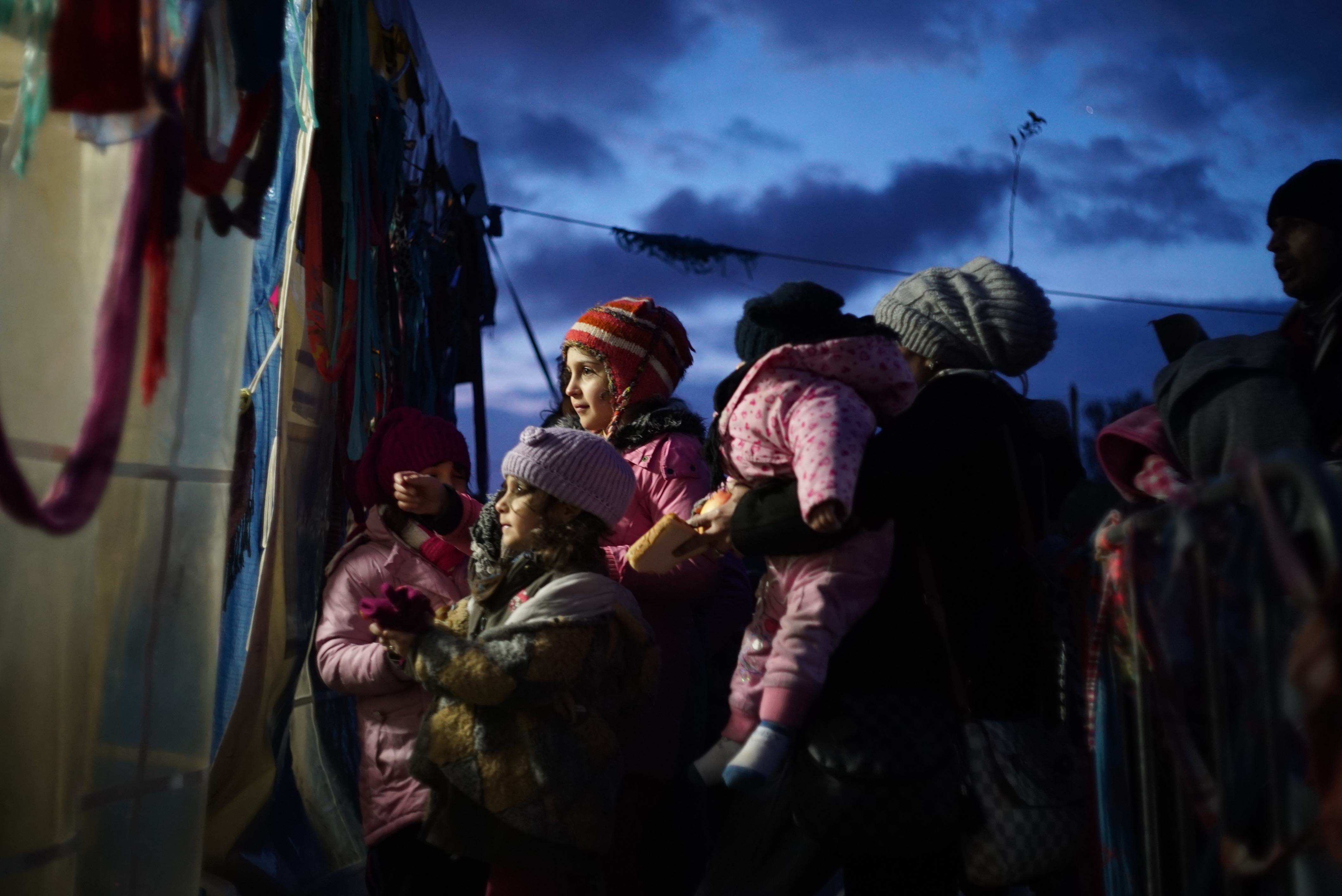Boots on the Ground: Volunteers of the Refugee Crisis
- Text by HUCK HQ
- Photography by Hendrik Faller and Bailey Tom Bailey
Since Lesvos emerged as a focal point of the refugee crisis, volunteer organisations have worked tirelessly to mitigate the human cost of the unfolding humanitarian disaster. The Greek government and international aid agencies have proven unable to cope with the half a million and counting arrivals to the island on flimsy dinghies from Turkey – but where they’ve failed, an army of volunteers have stepped in to meet refugees’ basic needs.
Merel Graeve is a dedicated member of Better Days For Moria – named in reference to the over-stretched and under-resourced official registration camp on Lesvos, called Moria. While the authorities have struggled to cope with one of the largest movements of people in history, the assistance of volunteers has not always been welcomed, and there has been friction over the volunteers’ unofficial “Olive Grove” camp next that sits next to the state-run Camp Moria.
The situation facing arriving refugees reached its lowest ebb in October 2015, when they experienced delays, a lack of resources, and often degrading treatment at the hands of authorities. Conditions for refugees on Lesvos have improved since then, with an increase in supplies and the winter weather discouraging others from making the perilous trip. Life, however, remains tough.
Following the implementation of the ‘one in one out’ EU-Turkey deal, tensions have rising between the Greek government, the UN Refugee Agency (UNHCR), and NGO’s including Doctors Without Borders (MSF). The UNHCR has condemned those responsible for seeing registration camps like Moria being turned into detention centres.
Volunteer organisations like Better Days for Moria are also considering leaving the islands to move to one of the camps on mainland Greece, where tens of thousands of people are now stuck in limbo.
MSF released a statement announcing their decision to leave Lesvos. “We took the extremely difficult decision to end our activities in Moria because continuing to work inside would make us complicit in a system we consider to be both unfair and inhumane,” said Marie Elisabeth Ingres, MSF Head of Mission in Greece. “We will not allow our assistance to be instrumentalized for a mass expulsion operation and we refuse to be part of a system that has no regard for the humanitarian or protection needs of asylum seekers and migrants.”
Enjoyed this article? Like Huck on Facebook or follow us on Twitter.
Shot and directed by Hendrik Faller. Second camera by Bailey Tom Bailey.
You might like

On Alexander Skarsgård’s trousers, The Rehearsal, and the importance of weirdos
Freaks and Finances — In the May edition of our monthly culture newsletter, columnist Emma Garland reflects on the Swedish actor’s Cannes look, Nathan Fielder’s wild ambition, and Jafaican.
Written by: Emma Garland

Remembering Holly Woodlawn, Andy Warhol muse and trans trailblazer
Love You Madly — A new book explores the actress’s rollercoaster life and story, who helped inspire Lou Reed’s ‘Walk on the Wild Side’.
Written by: Miss Rosen

A new documentary spotlights Ecuador’s women surfers fighting climate change
Ceibo — Co-directed by Maddie Meddings and Lucy Small, the film focuses on the work and story of Pacha Light, a wave rider who lived off-grid before reconnecting with her country’s activist heritage.
Written by: Hannah Bentley

In 1971, Pink Narcissus redefined queer eroticism
Camp classic — A new restoration of James Bidgood’s cult film is showing in US theatres this spring. We revisit its boundary pushing aesthetics, as well as its enduring legacy.
Written by: Miss Rosen

As amapiano goes global, where does it leave its roots?
Rainbow grooves — Over the past decade, the house music subgenre has exploded into a worldwide phenomenon. Jak Hutchcraft went to its birthplace of Mamelodi, South Africa, to explore its still-thriving local scene.
Written by: Jak Hutchcraft

The inner-city riding club serving Newcastle’s youth
Stepney Western — Harry Lawson’s new experimental documentary sets up a Western film in the English North East, by focusing on a stables that also functions as a charity for disadvantaged young people.
Written by: Isaac Muk

